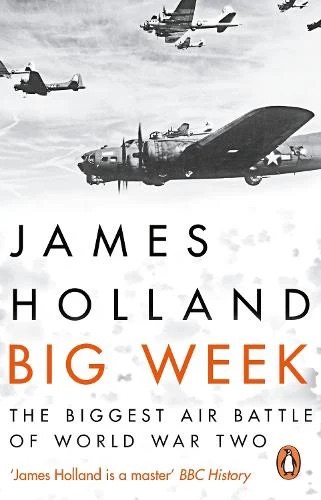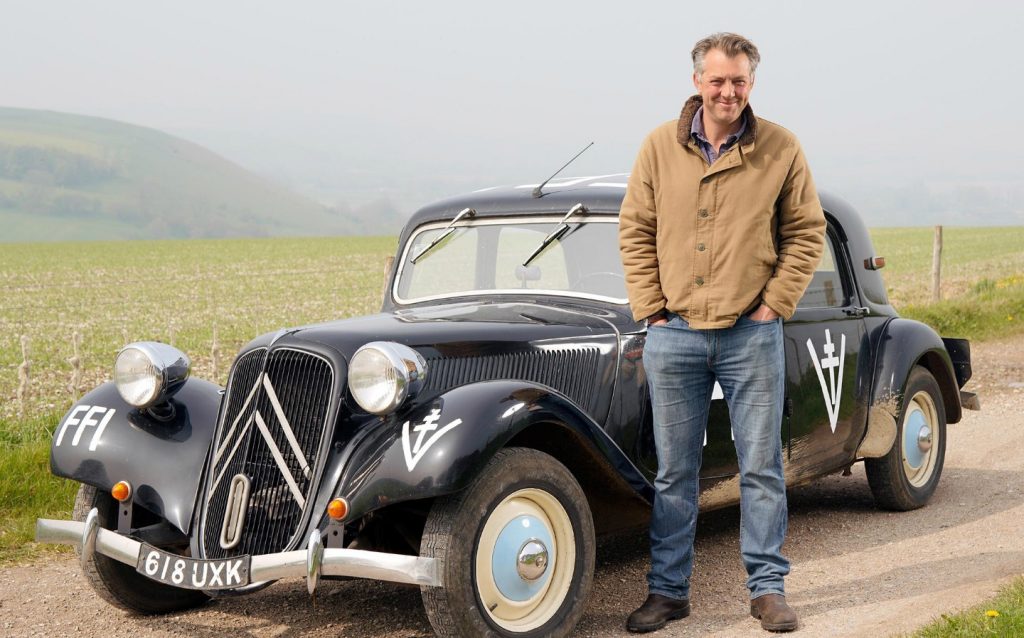

I got this book on an unexpected whim, in circumstances I relate elsewhere. At the time I was watching the Apple TV/Playtone (Hanks/Spielberg/Goetzman) Masters of The Air miniseries, which is about much the same subject.
Although this book is titled Big Week, most of the book – the first two thirds, at least – is about the American and British bombing war against Germany. Only the final third or so is actually about the titular Big Week drive.
This larger context was the Allied effort – a mirror image, really, of the initial German attempts to destroy the RAF, prior to the mooted Operation Sealion – to annihilate the Luftwaffe, as a precursor and precondition (total air supremacy) to Overlord, the Allied opening of a second/Western land war front.
I can hardly call this a spoiler alert, as we all already know the outcome! But of course whereas Hitler/Goring and Germany failed to destroy the RAF, and in turn abandoned plans to invade/subjugate Britain, the Western Allies – Britain with her Commonwealth resources (Canada, Australia, India, etc), and the mighty US of A – succeed in their goal of grinding the Luftwaffe down.
It’s interesting to read that it wasn’t just Germany – lead by a man losing touch with reality – that struggled with unwieldy command and control or conflicting goals. For Germany the switch from destroying the RAF to ‘reprisal’ raids on cities was a mistake that would cost them the war. For the Allies, they could ride out these issues, with manpower and materiel to spare.
This is a very different read to Paul Overy’s The Bombing War. I read the latter some years ago. It’s a huge brick sized door-stop of a tome. Holland’s style is more ‘popular history’; still very well researched, but more focussed on the action, and individual stories. Whereas Overy’s work is a drier more academic look at the subject.
Holland’s book is, as a result, both gripping and enjoyable to read. I was in the middle of reading another book (on the battle of Trafalgar) when I started this, and it took over completely.
We live in East Anglia, in The Fens. So many of the air bases mentioned in the book are local names/places. And, rather poignantly, we are very familiar also with The American Cemetery, at Madingley, which is mentioned here. Memorials to those killed in war are always more affecting when you’ve read of the individuals’ lives.
I won’t synopsise the contents in great detail here. Other reviewers elsewhere have already done that. I’ll just say that I really enjoyed it. Holland covers both the Allied (British and American) and German perspectives, using a great deal of firsthand accounts, making for a very vivid narrative.
He also addresses the strategic as well as the tactical day to day stuff; both sides were to some degree hamstrung by issues arising from the guarding of jealous fiefdoms, and conflicting command and control aims.
The biggest thing ultimately was that Hitler, and Goring, Luftwaffe chief and fawning acolyte of The Führer, lost touch with reality. They bit off more than they could chew. There’s an inevitability to it all. Germany simply didn’t have the resources, either manufacturing, logistical, or manpower wise, to take on Russia, England (and her Empire/Commonwealth) and the US.
One of my favourite aspects of this excellent book is not ‘The Big Week’ part, with which it ends, but how it starts; the story of how America geared up for and met the challenges of producing men and materiel with which to defeat Nazi Germany.
The development and production of the B-17 Flying Fortress and P-51 Mustang are key elements in this story. As also is the training American pilots got. The Allied philosophy – in stark contrast to the way Germany and Russia waged WWII – of metal not men, using technology to conserve lives, was (as well as being morally superior) a winning one.
If I was being hyper-critical, I might say that this book is occasionally a bit repetitive, or sometimes get’s a bit Commando Comic in its efforts to convey the action. But the truth is, I’ve loved reading it. Here, on my own blog, I can and do give a four and half star rating. But elsewhere, e.g. goodreads.com, I give it five.
An excellent book. Highly recommended.

